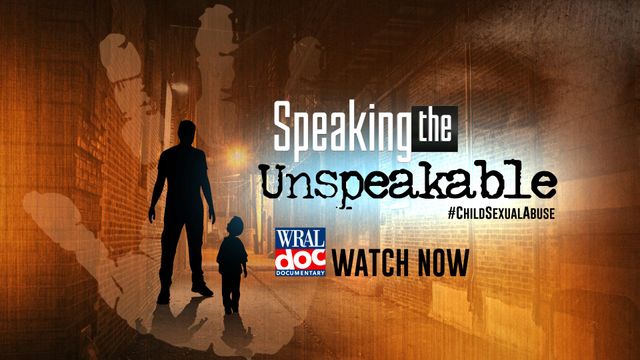Editorial: Documentary on child sex abuse shows need to properly fund law enforcement and counseling
Friday, April 13, 2018 -- Sometimes talk is not cheap. When it comes to dealing with child sexual abuse, providing funding so victims can talk about what's happened to them, seek justice and treatment, North Carolina cannot afford to scrimp on aid that will help kids cope and thrive.
Posted — UpdatedIt is difficult to watch and listen to Knight Chamberlain and his younger step-brother Michael Mack talk about the sexual assaults they suffered as young children in western North Carolina. It was no doubt at least equally challenging for the two to summon the courage and poise to tell their stories to the world.
In the telling of their stories, the two reveal some of the common characteristics of child sexual abuse: guilt and shame felt by survivors; fear of speaking out, pain of keeping it secret and; manipulation by the abusers who count on their victims’ silence.
Knight Chamberlain was nine years old when he was assaulted at knife-point by a man in his hometown of Brevard. After the assault he told a friend, who told a neighbor who in turn told his mother.
The police were contacted, an arrest was made. But in those less sensitive times, and when it came time for the trial, the atmosphere and the courtroom was just too much. A little boy, he couldn’t bring himself to go into the courtroom to testify. The abuser was let go.
He grew up and became a journalist, but was unable to stay in the same job for more than a year or two. It was by telling his story – including in his book “Sidestepping the Pit” – that Knight confronted the lasting impact the assault had on his life. While he avoided the depression and substance abuse that often plagues child sexual assault victims, he was able to come to terms with it and his attacker.
At an early age Michael Mack knew he wanted to be close to God and becoming a priest in the Catholic Church would be the way. When he was 11, while helping his own priest make costumes for the Easter play, the priest sexually assaulted him in the church rectory.
“It would be years before I told anybody and really that’s where the effects of what happened started to play out on me because the first thing that it was, was a secret. … It was like there was this little, this poison inside of me.”
There were the years of depression, isolation and suicidal thoughts – the alcohol and drug abuse. It was only years later, by opening to therapists, family and close friends, that he was able to start healing. He’s written, and performs, a one-man play.
Both Knight and Michael today are strong voices for raising awareness of child sexual abuse and advocating for its victims.
That is the message from Knight and Michael in “Speaking the Unspeakable.”
The abuse and the abusers lose their power when there is the opportunity to bring events and emotions into the light and share what’s happened with trained and compassionate listeners. It can also happen by talking publicly, in person, to folks and through the book and play.
Sometimes talk is not cheap. When it comes to dealing with child sexual abuse, providing funding so victims can talk about what’s happened to them, seek justice and treatment, North Carolina cannot afford to scrimp on aid that will help kids cope and thrive.
Related Topics
Copyright 2024 by Capitol Broadcasting Company. All rights reserved. This material may not be published, broadcast, rewritten or redistributed.





